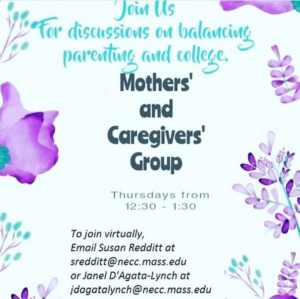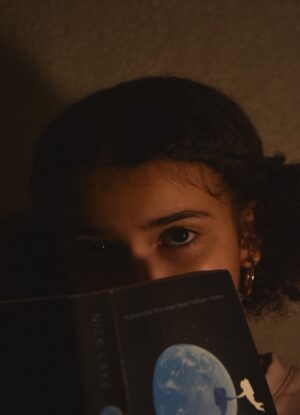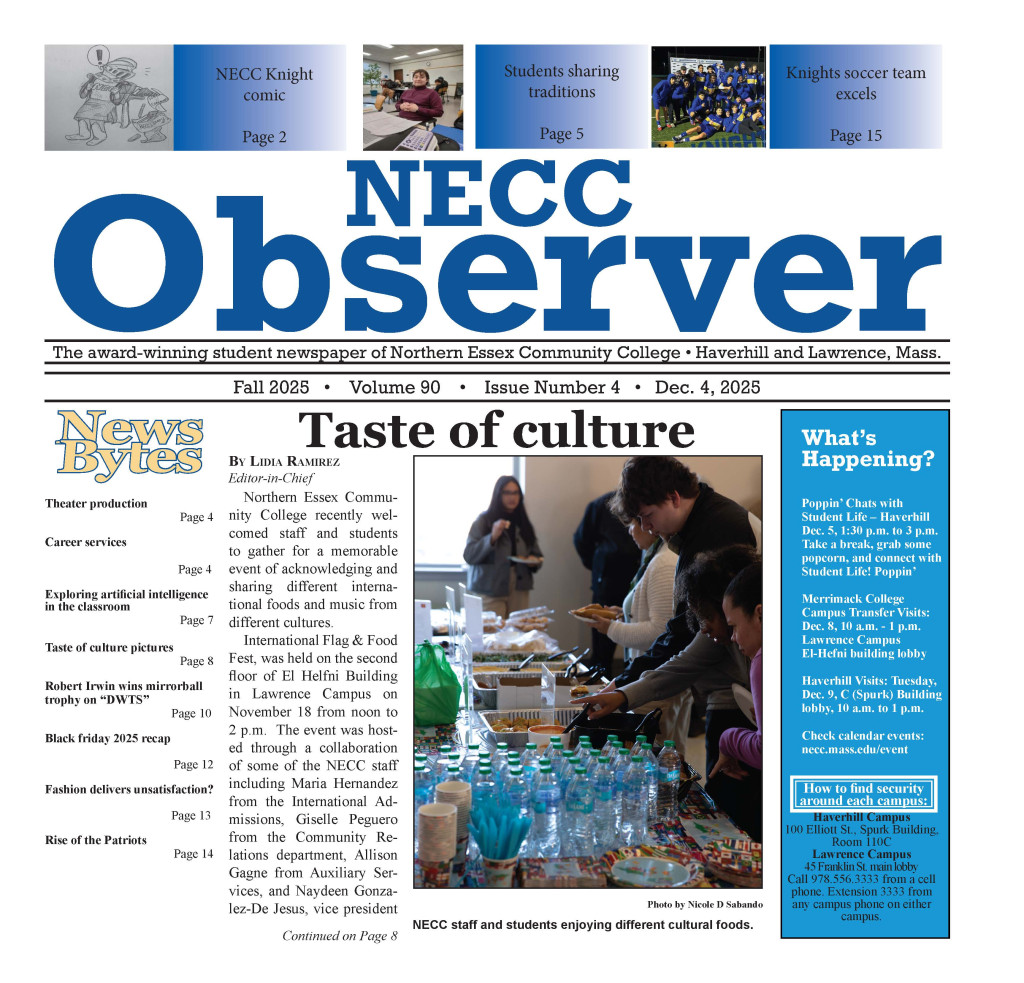All posts by Observer Staff
Graduating in a pandemic
Another spring, another slew of college graduations.
It’s a tale as old as time itself. Except this year, it’s different. There will be no gathering with our peers, throwing our hats in air, and then celebrating together afterwards.
Instead most of us will be tuning into a “virtual’ graduation on our computers; that is if most people even bother with it. But that’s just how it is to be graduating amid a pandemic.
Seniors this year aren’t going to be afforded the celebration that those that walked before them enjoyed. Instead they will be under a metaphorical house arrest when we should be walking across the stage.
They will get their diploma in the mail, instead of handed to them by their dean.
They will be drinking alone, instead of one last time at the local bars they enjoyed with their friends as upperclassmen. There will always be a hole in their life experiences where their college graduation should’ve been.
To add insult to injury, seniors are also graduating and matriculating to what likely will be a recession economy due to the Coronavirus.
Graduating students that join the job market during a recession make less than peers that graduate and join a more favorable job market for 10-15 years, according to a study conducted by Stanford.
SO not only will graduates of 2020 be robbed of a precious memory, they will also likely be screwed because of this pandemic for the next decade or so.
High school seniors are also being derived an opportunity to celebrate a 12 year journey that a lot have been together on the entire time. Not all of them will go on to attend college as well.
But at least for some of them they will have a chance to finally walk across a stage to receive a diploma.
The people that are trying to do something to soothe the pain felt by graduating seniors are former president and former first lady, Barack and Michelle Obama. The Obamas are to give a virtual commencement for the entire country on May 16 at 8 P.M., according to Time Magazine. This was a nice gesture by Obama, whose speeches serve as a cup of ice water on the scorched jumbled speech we have grown accustomed to hearing from the current Commander-in-Chief.
Yet, it doesn’t stop one from feeling disappointed with how the end of this school year turned out for everyone.
From the bottom of my heart, to anyone graduating this year I am sorry for how this turned for you. Better times are ahead. Hopefully.
Pandemic robs student athletes of a season
Almost all of the college sports seasons were either suspended, if they were already in play, or cancelled, if they had yet to start, by mid March.
This had many far-reaching implications on many people, academic institutions, and corporations that relied on these sports for either entertainment or revenue.
Many estimate that Vegas casinos and other avenues of gambling lost over 100$ million dollars with the cancelation of the Men’s basketball tournament, also known as ‘March Madness’, which was consistently one of the biggest gambling events of the year.
The event’s cancellation could be a huge blow to a legal sports gambling industry still in its infancy. Many schools that do not field a football, or at least a division 1 FBS football team, relied on revenues from their more popular winter and spring sports to support sports that don’t generate as much revenue, or may even be operating in the red.
This may cause some schools to trim down some of their smallers sports or cut them out altogether. This would have a drastic effect on the faculty employed in those sports, as well as the athletes that compete and have scholarships for those sports. More on the latter of these two later though. Many sports stations and streaming services that had secured the rights to broadcast these sports are losing out on millions, if not billions, collectively.
The aforementioned march madness tournament is one the biggest television events of the year while also spanning several weeks. It brought both revenue and ad money that just can’t be replaced with anything else, especially with professional sports being on a hiatus too.
Despite all these hardships that have been previously mentioned in the preceding paragraphs, they only touch upon lightly the people that I feel for the most: the Student-Athletes that were robbed of a season. Right away eligibility issues arise. The NCAA, the body that governs most collegiate sports in America, is notorious for making boneheaded decisions of which the logic that guided them there is unclear. To give them credit though, they did decide that all spring athletes would be able to be given an extra season of eligibility to make up for this lost season. But some athletes might not be able to take advantage of this.
For one, they may have already had jobs lined up for the upcoming year upon graduating. Also, not all athletes are on scholarship. Many of them are ‘walk-ons’ people who do not receive financial rewards for their athletic contributions.
For this group it doesn’t make financial sense to stay another year on their own bill. All of this isn’t to mention the winter sports athletes that were robbed of the ending of their season. Imagine being a senior. You know your next few games are all do-or-die games.
Everytime you step foot on the court, it could be the last time you’re doing it competitively.
You hyped yourself, knowing that from here on out you’re going to give it your all and…. That last game just never comes. That must be devastating, as most of these student athletes are not being granted an extra year of eligibility.
To all the student-athletes of the winter and spring sports, you have my sincerest condolences. I am truly sorry that this pandemic robbed what little precious time most of you have left to compete in the sports you all respectively love. It doesn’t compare to the people who are dying, but it really is a tragedy in and of itself.
Pulitzer Prizes announced

This year’s 104th Pulitzer Prizes announcement, which has honored excellence in journalism and the arts since 1917, was initially scheduled for April before being postponed until May 4 and delivered virtually.
In the past the announcement has come in late April and since 1984 Pulitzer winners have received their prizes from the president of Columbia University at a luncheon in May in the Low Library but because of the ongoing pandemic Dana Canedy, administrator of the prizes, gave the announcement via livestream on the Pulitzer Prize website.
According to pulitzer.org, the event has been live-streamed on the Pulitzer site since 2015, but because of Coronavirus the livestream this year will hold much more significance.
“It goes without saying that today we announce the Pulitzer winners in deeply trying times,” said Canedy streaming from her living room. “Ironically, the first time the prizes were presented was June 1917, less than a year before the 1918 outbreak of the Spanish Flu pandemic. In difficult times the Pulitzers may be more important than ever.”
Among this years’ prizes was a first in the new category for “Audio Reporting” which honors “audio journalism that serves the public interest, characterized by revelatory reporting and illuminating storytelling,” according to pulitzer.org. The first winner in the category was the staff of NPR’s “This American Life” along with Molly O’Toole of the LA Times and Emily Green freelancer, Vice News for “The Out Crowd” on the Trump Administrations “Remain in Mexico” policy.
Another winner this year was Barry Blitt, contributor to the New Yorker for his cartoons depicting policies and personalities in Trump’s White House. And these prizes have been awarded only a few short days after Trump took to Twitter to declare “Pulitzer Prize-winning reporters be stripped of their “Noble” prizes for critical reporting about him,” according to nydailynews.com.
Trump called for journalists to return their Pulitzers, which he called “Noble” prizes, misspelling the Nobel Peace Prize and confusing two of the world’s most prominent awards. “He later claimed that he intentionally used the word “Noble” to emphasize how improper it was for the journalists to be honored,” as he seeming tried to explain away an apparent gaffe as a less than stellar play on words, according to nydailynews.com.
“Despite relentless assaults on objective truth, coordinated efforts to undermine our nation’s free press and persistent economic headwinds, journalists continue to pursue and deliver essential facts and truths to keep us safe and protect our democracy….One thing we know for sure is that journalism never stops,” said Canedy.
Among other winners this year for journalism are Anchorage Daily News for Public Service, staff of The Courier-Journal for Breaking News Reporting, Brian Rosenthal of The New York Times for Investigative Reporting, staff of The Washington Post for Explanatory Reporting and staff of The Baltimore Sun for Local Reporting among many others.
Parenting through a pandemic: NECC offers support group to caregivers

As any community college, Northern Essex has its fair share of students with diverse needs and various non-school commitments. Now, thanks to a new student interest group, busy moms and caregivers will have a place to unwind on campus every Thursday, (when the campus was open from 12:30-1:30 p.m. on the Lawrence campus in room L144.).
Now that the campus is closed the group has moved to using Zoom meetings to connect.
At the head of this group is Susan Redditt who’s an intern from the Salem State Masters in Social Work Program working with Janel D’Agata Lynch, the coordinator of civic engagement, service learning and community resources.
Redditt said she got the idea for the group from Stephanie Haskell, student life coordinator. Redditt is a non-traditional student and like the other members of the group, she has two children, ages 21 and 26.
By her side is Marlenne Astacio, from Lawrence, a public health major. Astacio is a mother of a two year old. Along with raising her child and being a student, Astacio is working an internship with the civic engagement, service learning, and community resources department.
Susan Benoit, from Lawrence, a sleep technologist major, is another co-facilitator of the group and also a mom to a 3 year old.
In the first three weeks of the group’s meetings the goal was to create a space where students that are also moms or caregivers can go to relax, vent, and share parenting stories. According to the members, the group serves as a place where they can share pertinent information that helps them understand their children better. During one meeting the group discussed routines and rituals and how they can help create a balanced sleep schedule for them and their young ones.
The moms discussed the difficulties of trying to be a “perfect” parent and how that’s especially difficult when you’re a new mom without prior experience. One mom said, “You don’t have training, you just [parent] and hope for the best!”
Members are also encouraged to give presentations, like one mom’s presentation on Feb. 27 on bruxism, or teeth grinding, in children. She took the opportunity to educate the fellow moms about the prevalence of this issue and also to vent about how she loses sleep due to it.
The group also offers “real food” supplied by Redditt. There are options available besides just chips and snacks, a luxury for busy moms that also attend college, as they don’t always get the opportunity to feed themselves, according to the group.
In the future, the group wants to continue to be a safe space where moms and caregivers can meet with fellow students that face the same challenges as them. They want to eventually have the group meet two times a week and, if they can, they’d like to be able to provide child care during the meeting times. The group also makes time for self care for the moms, during one meeting they applied face masks for a “spa day.”
In the face of COVID-19 the members have moved to an online platform of support using Zoom meetings to connect and talk about the fears of parenting during a pandemic. Members say they appreciate having the extra time to spend with their children at home but they’re also afraid to bring their children outside.
Another member got support from the group in the new challenge of supplying their child’s therapy with only virtual help from their therapist.
For more information, contact Susan Redditt at sredditt@necc.mass.edu.
Are ‘murder hornets’ cause for concern?
As if living through a pandemic isn’t anxiety inducing enough by itself, social media rumors are now being spread about a mysterious “murder hornet” that has migrated to the United States.
In late 2019 two bees were spotted in Washington, later determined to be Asian giant hornets, the world’s largest wasp according to National Geographic.
Andrew Venditti, a communications major at NECC said the “murder hornet” sounds like it came out of a sci-fi movie. The arrival of the hornets is still a mystery to researchers. Venditti said “I can’t imagine a hornet flying across an ocean, so they probably got here stowed away on a boat or plane.”
Maddy Gosselin, NECC alum and current resident of Bridgewater MA, said she hasn’t even heard of the hornets. “We’ve already got corona, I don’t think anybody wants any more foreign killers entering the country,” said Gosselin.
Retired University of Montana bee expert Jerry Bromenshenk said that the media hype for the hornets is “turbo charged.”
While National Geographic states that they are able to kill humans, the danger lies in the threat they pose to honeybees. The hornets can wipe out entire honeybee colonies. “Hopefully we can get rid of them before they do too much damage to the indigenous honey bees that are already in lower numbers than they should be,” said Venditti.
Caitlin Camiliere, a New England native currently residing in Lander, WY, said she doesn’t know much about the bees but she heard that they’re killing native U.S. bees and that makes her sad. “We are already struggling to keep our pollinators healthy as it is, what with climate change and industrialization.” She added, “If those dirty hornets think they’re gonna kill the last remaining pollinators they’ve got another thing coming!”
Associated Press reported that since a lone hive was wiped out in Canada last September no Asian giant hornets have been spotted in 2020. Bug experts told AP that instances in which these hornets have killed are rare and said for humans “it’s a really nasty sting.” The number of people that seek medical attention after the stings is incredibly small.
To put it in context, the World Health Organization says that mosquitoes are responsible for millions of deaths yearly worldwide while Asian giant hornets kill a few dozen people a year at most, and in Asia people have lived with this hornet for thousands of years.
CBS News reported that a public outreach campaign has begun to report sightings of the wasps. Entomologist Chris Looney says, “don’t try and take them out yourself if you see them.” He says any sightings should be reported to the Department of Agriculture. God only knows what next month will bring us.
Adjusting to our new normal
Recently with the extension of the Stay-At-Home order given by the governor of New Hampshire, it looks like they are trying to re-open the state slowly and effectively. The new order is now in effect until at least May 31st.
Personally, I think it was a good idea to extend the order considering Massachusetts did as well because if New Hampshire were to re-open while Mass stayed closed then a lot of those residents would come up here and spread it, even more, considering they are a top state with cases. As one of the states with fewer cases, I don’t see the rush they have to re-open it and boost cases drastically.
Sports are postponed for the time being. The NBA suspended operations about a month ago, along with the NHL, and the MLB delayed their opening day and have yet to set a new date for the beginning of the season.
The only sport that wants to try and start on time is the NFL but that won’t be until at least September. The NFL is trying hard to keep the season, but it is looking less and less likely with each passing week.
Recently Korean baseball has begun with huge restrictions. The only problem is if you want to watch it live you must be up around 2 am to watch it. Without sports, it has been a very boring quarantine but that is fine if this ends sooner rather than later if they pushed to bring them up.
My work has changed as well. Working at a credit union, at first other workers were coming to our branch to work with their place closing. With rules from the state of groups of 10+ not allowed, our big group was then split into teams to work every other day so there was less contamination. Now with the new rules, we must wear masks 24/7 while at work and keep a distance away from our coworkers as much as possible.
All the rules and regulations needed to be followed is a lot to handle with everything going on. Now I excessively wash my hands to a point where it seems like too much but with our current situation too much probably isn’t even enough.
As much as people dislike staying at home, if we can limit the spread of everything, we expect things to come back to a completely normal matter a lot sooner.
A conversation with student trustee Courtney Morin
Courtney Morin serves as the Northern Essex Community College Student Government Association’s Vice President of Haverhill and also as the Student Trustee on NECC’s Board of Trustees.
In recent SGA meetings, she and Stephanie Haskell, a member of NECC’s staff and the advisor to the SGA (a position whose holder authorizes SGA votes and serves as the bridge between the student government and NECC higher-ups), have talked about a legal campaign proposed by the Student Advisory Council members to change the laws surrounding the election of the Student Trustee.
To find out more about their intent to challenge the laws and what the Student Trustee does at NECC, NECC Observer SGA Correspondent Jonas Ruzek sat down in his bedroom to interview Morin virtually. Below is the conversation that took place.
JONAS RUZEK: “How and why was the student trustee position established?”
COURTNEY MORIN: “The student trustee position is a position written into Massachusetts General Law. The reason why the position was established is not written. However, I suspect that it was to give a student voice to each public college’s Board of Trustees.”
RUZEK: “What are your roles and responsibilities as the student trustee?”
MORIN: “To act as the student representative to the Board of Trustees, be a voting member on the board and attend monthly meetings to discuss enrollment reports, planning, emeritus approvals, tenure approvals, sabbatical approvals and reports, audit reports, budget reports, fiscal year budget reports, campus safety reports, and other matters.
“The student trustee is also a voting member to the Student Advisory Council to the Board of Higher Education. The student trustee can also be a member on one of the committees on the college’s board of trustees, such as the Presidential Evaluation Committee, where President [Lane] Glenn’s leadership is evaluated each year.
“While it is not a requirement, Trustees are highly encouraged to be involved in and attend the Student Government Association, as they can be the bridge between the SGA and the Board of Trustees. This includes the ability to inform the SGA of any matters that may concern them and the student body as a whole (such as tuition increases, campus safety and armed police on campus, etc.).”
RUZEK: “When and how is the student trustee usually elected? And what are the necessary qualifications a prospective trustee must possess?”
MORIN: “The student trustee is elected every spring semester, usually at the end of April and early May. According to Massachusetts General Law, the new student trustee is to be elected by May 15. Students must be considered full-time students and be in good academic standing.”
RUZEK: “Is the position paid? Also, how long are terms?”
MORIN: “No, it is fully voluntary, and terms are one year, from July 1-June 30. But a Student Trustee is allowed to run for reelection.”
RUZEK: “What legal change to the laws surrounding the position are being proposed by Stephanie Haskell? Why is she pushing for this change?”
MORIN: “The legal changes to the laws surrounding the position are not being proposed by Stephanie; they are being proposed by the Student Advisory Council members. The change would be to alter the requirement of full-time to part-time. This would make the position open to more students and would be more equitable to the population of community college students specifically, as much of our population is part-time.”
RUZEK: “Do you foresee in the near future any change to the laws? If so, what kind of change?”
MORIN: “In the face of COVID-19, I don’t see any change to the laws, specific to this change in requirement, happening soon, However, it is something that I hope won’t be forgotten in the aftereffects of the pandemic. This change is important, though, and shouldn’t be forgotten.
“Also, for the law to change we need a legislature to sponsor the law first. I’m unaware right now if the Student Advisory Council members have gotten one yet. Then they have to go through a very long process of changing a law.”
RUZEK: “How high of a priority do you think change to the laws should be? How much of a problem do you consider current laws to be?”
MORIN: “For community colleges specifically, I think that the law is outdated and doesn’t reflect the current population of community college students.”
“Even at the university level, there are more part-time students attending than ever. A student is a student, and we should not be disqualifying certain students because they aren’t considered full time, especially if there is already a concern in our student population of hunger and homelessness.
“Many have to go only part-time so that they can support themselves and/or their families, be this through working one-two jobs, taking care of kids or other family members, dealing with chronic illness, transportation, food, etc. They are still members of our NECC community, or their respective college communities, and their voices should still be able to be heard as such.”
RUZEK: “Is there anything else you want the public to know?”
MORIN: “Student voice is fundamental to the operation of colleges. There would be no colleges if there were no students. The Student Trustee position allows this voice to reach the people at the top of the ladder and to make certain that our voices can be heard if need be.
“It’s an incredibly interesting position, as you are able to see two sides of the governance process: the student perspective and the administrative perspective. Sometimes these don’t align, but the ability to hear and see the perspectives of the administration on why they chose to do X, Y and Z is incredibly valuable. ”
Time for creativity
This is an interesting time for creatives, and I would know because I am a photographer, writer, and a graphic designer. As a student and a big sister to 3 girls, times have been tough, and my family and I have had to adjust. Everyday for the past 4 weeks, I’ve had to commit to being a homeschool art and spelling teacher, and a student with all my courses online. But somehow I’ve had more time for my art and writing. It’s hard to find inspiration to create when life is less adventurous and you can’t experience much while sitting at home and just trying to stay productive.
As a photographer, it’s been hard to find new ways to take pictures, and new subjects to have for those pictures. But last week my sister and I came up with the idea of experimenting with my camera skills and her modeling skills. We share a small room and we have a bunked bed, so we set up a white blanket under the top mattress, coming down to be our backdrop. We also use a lamp for our light that I moved around while taking the pictures, to get different affects on the quality of the photos. I used moved around to many sides of the room and used props like a book, and my big winter jacket. Although we just did this for fun, these came out to be some of my best portrait photos. Here’s a little look:



I do believe that I would never get these pictures if we weren’t quarantined and always home. I also have more time for writing my poetry and I wrote a good poem a few weeks ago when this all started, inspired by social distancing and everything I’ve been personally going through so far. For me, the only positive to come out of this crazy pandemic, has been my time spent on writing and art. I’ve also learned a lot and I’ much better with time management. Before this happened, I was almost never home, between work, school, business, my friends and my boyfriend, so when I was home I’d relax and procrastinate and I’d use the fact of me never being home as an excuse to not get much done while I was home. Since I’m always home now, there are no more excuses and I’m always trying my nest to stay on top of things and keep moving forward.
But I will get through all the negatives that come with these positives, because I have my writing and art.
Here is the poem that I wrote:

Lessons learned from quarantine
The coronavirus has had its grip on the entire world for the better part of 2020. As human beings it is in our nature to learn, grow, and thrive in the face of adversity. While we continue to fight through this pandemic, many people are noticing things about themselves that perhaps would not have been so evident otherwise.
Jane O’Connell, 22, of Norwell, works part time as a unit coordinator at MGH. She has discovered that exercise is her “friend”. “I’ve learned that the best part of my days now are when I am out for a walk or jog. Doing so allows me to clear my head and reflect on what is going on in the world and all the things I am seeing at work.” She said via text message.
Nurse Angela Pagliuca, 33, of Revere said, “The pandemic has taught me that sometimes in life we need to slow down and take care of ourselves.”
“Pandemic has taught me that I’m more of an extrovert than I ever imagined and that physical touch from other human beings is something I clearly too advantage of,” wrote Melissa Owens, 37, of Los Angeles, Calif. “It also has reminded me that I can actually live off less money if I stay home, cook 99% of my meals, not travel, and not buy and browse stuff in stores ‘cause I’m bored.”
For others like Kimberley Simmons, RN, BSN, 26, of Arlington, the pandemic has proven to be a sort of confirmation of character.
“This pandemic has reinforced for me that there are things you cannot control in life, and sometimes that’s okay,” she said via text message. “This disease has manifested itself as the great equalizer. It has reinforced being thankful for my health as well as my family and friends. Quarantine life is not too different for someone who is a homebody to begin with haha.”
In the eyes of some, the pandemic has exposed weakness in the government.
“…I learned how underprepared our government was in handling the situation and how little the working class is cared for in general,” said Samuel Correa, 25, of Everett, Mass.
“I’ve learned that we are fragile as a society. The seams have unraveled within our outdated government structure,” said Arthur Collins, 34, a software developer from Salem, N.H. in an email.
There are some that believe the pandemic has shown the faults we hold as intelligent beings.
“What this has taught me is that we humans are the virus on earth. How much we pollute is awful,” said Jacqueline Fabian, 33, of Lawrence. “Also, it taught me how much we take for granted, the little things like spending time with family.”
“I’ve learned that common sense is not that common and should be appreciated when you come across it,” said Angel Garcia, 34, of Lawrence via Facebook messenger.
For many, it’s the social distancing that is worst of all. Not being able to see friends and family or greet them how they are accustomed to is taking a significant toll on a large part of the population. This is especially true for Jonathan Perez, 32, a co-vocational church planter from Lawrence. “I learned the importance of an embrace. The warmth of a loving touch and the insurmountable need of the company of loved ones,” he said via Facebook messenger.
“The pandemic has taught me how important human interaction is for good mental health,” said Alison Fiscella, 30, of Raleigh, N.C. via text message.
There are those who have learned to appreciate the small things just as much as the big things in their lives.
Cindy Mejia, 32, of Lawrence wrote in a text message, “This pandemic has taught me that we take simple things for granted! Such as spending time with family! Not being able to see a family member or celebrate a birthday!”
“The pandemic has taught me how to enjoy and be grateful for the little things again. Like when we used to be able to buy toilet paper whenever we needed,” wrote Tneesha Jones, 32, of Greensboro, N.C. in a text message.
Some have decided to take this time to improve their lives for themselves and those around them. “I’ve learned how to telework, be a mom and a teacher all at once,” said Rebecca Pagan, 40, a technical lead at the IRS from Lawrence. “I’ve learned how to eat at home and not buy outside food which is the opposite of the way I was living before. I learned how to garden and that I truly have lots of patience.
The COVID-19 pandemic has created a greater appreciation for our advancements in technology and all things “new millennium”.
“…Without technology we really would’ve been screwed,” said Jesenia Torres, 32, of Manchester, N.H. who otherwise is not a fan of her three school aged children using electronics all the time but has found it to be very helpful during this time of quarantine.
At the end of the day, we are all being reshaped in some way by this pandemic. Our daily routines and thoughts have had to be modified in order to fit this new world. Hopefully we will survive to tell the tale and learn to be better at the end of it all.

